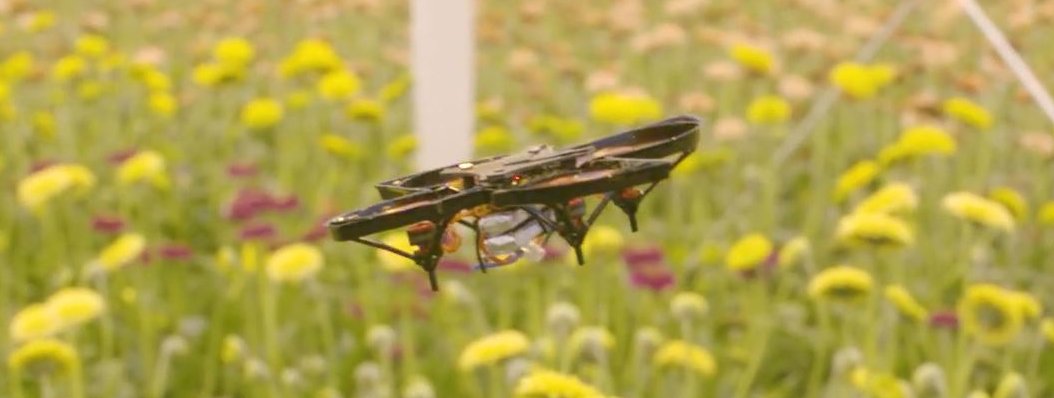“Autonomous flying drones to collect data for insight at plant level”
Professional greenhouse horticulture businesses are having to deal with new challenges, including the sustainable use of raw materials such as artificial fertiliser, water and energy, and limiting the use of pesticides. At the same time, upscaling is making it increasingly difficult to identify areas with anomalies at plant level. As a result, growers have fewer insights into and control over the crop, especially in areas that are not easily accessible to the grower. Autonomous flying drones offer a solution.
Growers also need decision support systems: a need which is driven by upscaling, the reduced availability of specialised workers, a general increase in labour costs and product quality and food safety requirements. Following on from the identification of crop anomalies, as mentioned above, there is a real need for automated advice, including recommendations as to which products to use to manage and control these anomalies. The speed and quality of decision support systems will have a major impact on a grower’s crop yield.
In order to automate this process successfully, it is important 1) that the crop condition parameters in large-scale greenhouses are collected, processed and presented automatically, efficiently and effectively, and 2) that the entire process is organised in a cost-effective way.

This presents an opportunity to use a unique method to collect data in greenhouses and to make that data available to growers. And it is precisely for this reason that we are developing autonomous flying drones for use in greenhouses. Through the use of an autonomous flying drone, TU Delft is developing a method that growers can use to monitor crop growth and anomalies in their greenhouse at plant level, even in hard-to-reach areas. In particular, the drone monitors the crop for pests and diseases.
The challenge lies in building a drone light enough that it is safe for people, plants and other features in the greenhouse, but also able to fly around independently in complex greenhouse environments without human intervention. This means that the drones have to be as intelligent as self-driving cars – but with far fewer sensors and less processing power. In this project, TU Delft is expanding upon the university’s extensive knowledge of the autonomous flight of small drones.
To learn more about the lastest results in this project: Self-flying drones that monitor greenhouse diseases and pests

